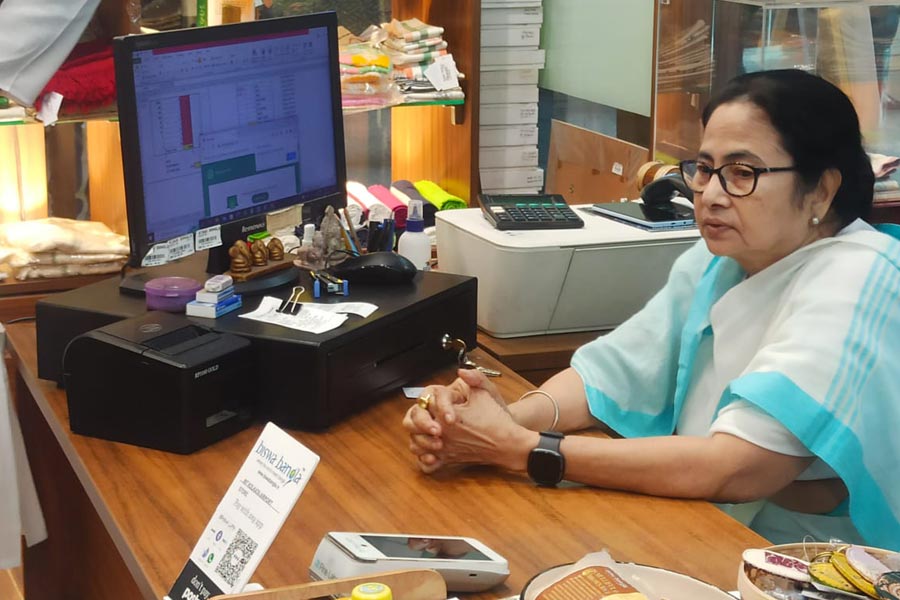Chief minister Mamata Banerjee on Saturday asked officials across the state to be alert about the impending rain and prevent new mosquito breeding pockets from developing as it could worsen the dengue outbreak.
Mamata spoke over the phone during a meeting to discuss the rain alert and the dengue situation.
State chief secretary H.K. Dwivedi and Calcutta’s mayor Firhad Hakim were among those who attended the meeting from Nabanna. Officials from districts outside Calcutta were present virtually.
A statement issued by the state government after the meeting said the municipality and the district authorities had been asked to clear waterlogged areas on a war footing.
“Since intermittent rainfall is expected to continue in coming days, all concerned were further directed to ensure that waterlogged areas to be cleared on war footing across municipalities and panchayat areas,” the statement read.
Metro reported on Saturday that 977 new dengue cases were reported in Calcutta in just the past week, according to figures shared by Hakim on Friday.
Hakim had said on September 22 that 1,100 fresh cases were reported in Calcutta in the week preceding September 22. He had said that the sharp rise was a matter of concern.
An official who attended Saturday’s meeting virtually said the chief minister wanted the authorities to ensure that the rain did not create new mosquito breeding sites.
New breeding sites start to appear once the rain stops, said an entomologist. The residual water that collects in any container — tea cups, plastic containers or shells of green coconut — then becomes a source of mosquitoes if the water is not drained out.
The Aedes aegypti mosquito, the primary transmitter of the dengue virus, can breed in a spoonful of water that remains undisturbed for seven days or more. The egg laid by the mosquito turns into an adult mosquito in seven days. The entomologist said that people were requested to check their surroundings at least once every week so all accumulated water could be thrown away.
A number of deaths from dengue have been reported in the past few weeks but the state government has not yet released any toll figures. The state administration has also been hazy about which are the most affected areas. Such details help in dealing better with a public health situation, experts have said.
Officials present at the meeting said the chief secretary asked them to ensure proper treatment for those admitted with dengue in state-run hospitals and check that private facilities were following the treatment protocol.
